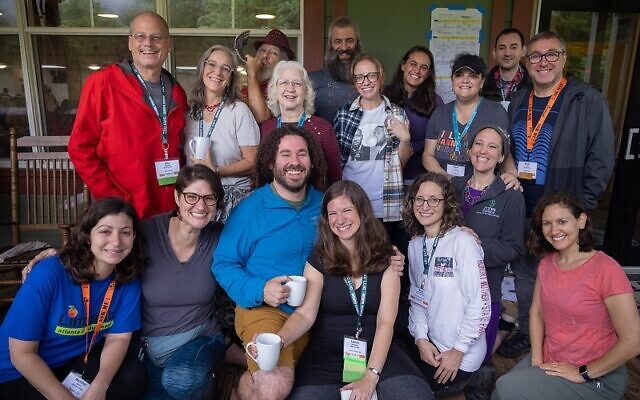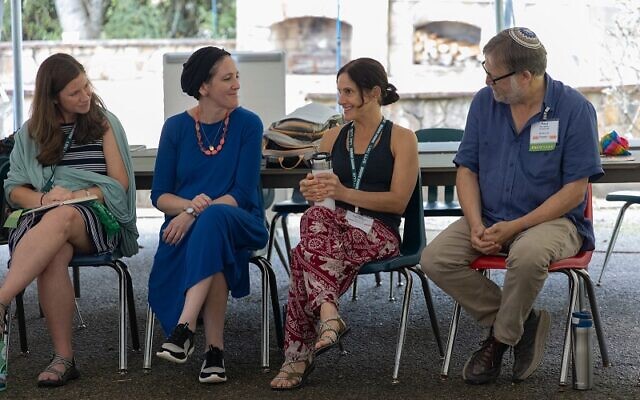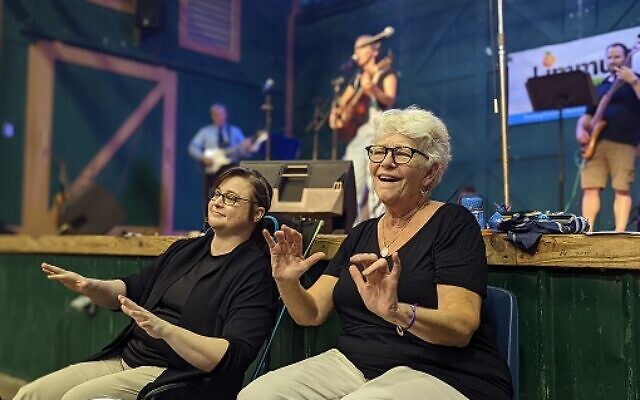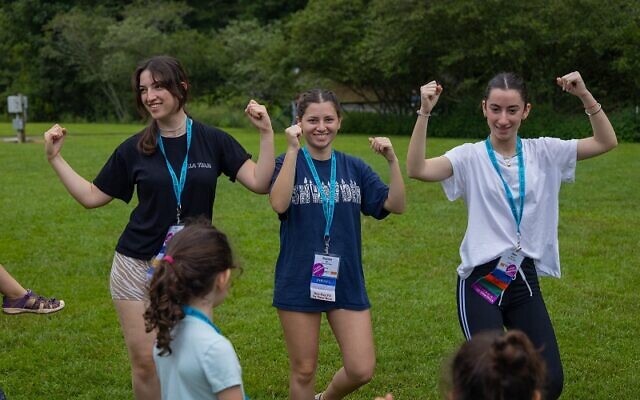Best LimmudFest Yet!
Over Labor Day weekend, LimmudFest offered all that the gorgeous campus and retreat center at Ramah Darom in Clayton, Ga. had to offer.
Perched on a rope swing, you look out at a misty lake surrounded by green North Georgia forest and gurgling waterfalls. Atop a hill, children join Israeli counselors in a game of gaga, a yoga session begins with a deep breath, and laughter erupts from the audience at a Jewish comedy show.
The smell of freshly baked Sephardi bread wafts up to you as you catch the sound to “Blowin’ in the Wind,” from the singers and guitarists on the porch below. To your right is a spirited discussion about the Abraham Accords, and to your left is a conversation about Elul and the meaning of forgiveness. This was the atmosphere of this years’ LimmudFest.
Limmud began in England during 1980 as a way for diverse Jews to join and study together: everyone was a learner, and everyone was a teacher. It blossomed into an international movement with about 100 festivals across the world. Limmud arrived in Atlanta 15 years ago, founded by Jodi Mansbach and the current executive director for Jewish Federation of Greater Atlanta, Eric Robbins, both remain active participants. For the past 13 years, camp Ramah Darom has hosted the only North American residential LimmudFest.

“Learning, Lounging, and Laughing,” was the theme for LimmudFest 2022. Over Labor Day weekend, LimmudFest offered all that the gorgeous campus and retreat center at Ramah Darom in Clayton, Ga. offered. The festival drew people from all the southern states and even states as far as Calif., Pa., Mass., Md., Ore., and the land of Israel.
The annual event is unique, styling itself after Abraham’s tent – open on all four sides –welcoming attendees of all backgrounds, ages, abilities, and interests.This year there were 300 participants including: children and teens (26%), 20s and 30s (28%), 40s and 50s (25%), and 60s+ (21%).
Not only were attendees diverse in age and geography, but they also represented diverse beliefs identifying as everything from: modern orthodox, conservative and reconstructionist, to just Jewish, interfaith, and post denominational.

The numbers don’t tell the whole story. People came to Limmud for a sense of Jewish community and connection. The organization facilitates this by providing a variety of religious and spiritual services from: daily mechitza minyans, to meditative hikes, while including certified kosher food in a Shabbat observant atmosphere.
Providing inclusivity for the LGBTQ+2 participants name tags include preferred pronoun, and gender-neutral bathrooms were conveniently located. Two certified American Sign Language interpreters assisted presenters and attendees to facilitates learning for everyone.
The annual gala concert was headlined by Charlie Kramer, a musician and teacher who is also legally blind and led a panel on Diversity, Equity and Inclusion. Kramer’s interactive and blindfolded presentation “Singing in the Dark,” was among the most popular sessions.

Those who arrived as strangers left as friends, and a sense of warmth and camaraderie infused the festival. Over half the attendees said, “It was the best LimmudFest yet!” Planning for 2023 is already under way.
LimmudFest by the numbers:
100 learning sessions taught by local and national presenters;
7 subject tracks: art, environmentalism & policy, Israel & Jewish history, Jewish culture, Jewish food, health & wellness and torah & sacred texts;
6 new participants in the Young Adult Development program, YADs;
8 Israeli Shinshinim taught, attended sessions and worked as counselors;
100+ volunteer slots filled;
25 scholarships awarded;
$3600 in stipends for professionals working at Atlanta Jewish non-profits to attend LimmudFest, provided by JPro ATL and Jewish Federation of Greater Atlanta.
Adina Rudisch is the program manager for Limmud Atlanta & Southeast.




comments